Former autocrat and self-reinvented democrat Mahathir Mohamad won the 2018 general elections, but less than two years later, the democratic fairy tales ended. In January 2020, under pressure from internal dissenters in his coalition, Mahathir resigned from the government. The old ruling party (United Malay National Organisation, or UMNO) then came back to power in a new political formation. By the end of May 2020, as Mahathir’s political descent continued, he was expelled from the party that he had founded in 2016.
Yet the political genius, who turned 95 in July, has not given up and is continuing to mastermind his way back to power. On October 5, in the midst of a continuing drama among political elites, Mahathir made another U-turn, announcing that he might be (again) running for the next general elections. An election due in 2023 could in fact be called as early as 2021. Could Mahathir come back for a 25th year of rule?
A long career in politics
Mahathir ruled over Malaysia for 22 years and resigned in 2003, promising he would never return to politics. Yet the country’s longest serving prime minister never truly left the political scene and continued to express strong opinions through his blog Chedet (a nickname from his school days). He also kept an important role in UMNO, the party he presided over for years and that ruled over Malaysia for 61 years.
Mahathir was, and still is, a controversial leader, perceived in the West as an autocrat famous for his anti-Semitic and anti-Western speeches, most recently by fiercely attacking French President Emmanuel Macron’s criticisms of Islam; he is celebrated in other parts of the world for the same reasons. In Malaysia and beyond, Mahathir is a symbol of the country’s economic successes and its rapid development in the 1980s and 1990s. Despite the contentious politics of his time in office, from his criticism of human rights to his extensive use of patronage, Mahathir has kept a very particular place in Malaysia’s history and in the minds of Malaysians. The younger generation of voters not born during his rule see the man as a wise and experienced leader, and they are drawn to his old patriarchal figure. Older generations have changed their mind over his controversial legacy and, by lack of alternatives, praised his comeback.
In 2016, in an unexpected turn, Mahathir resigned from UMNO and founded a new party (Parti Pribumi Bersatu Malaysia, or Bersatu) with his son Mukhriz and current Prime Minister Muhyiddin Yassin. He also allied with the opposition he had repressed under his rule, led by Anwar Ibrahim. Anwar is the leader of the Reformasi movement, which he created in 1998 after having been sacked from Mahathir’s government. He was then imprisoned on charges of corruption and sodomy until 2004. In 2016, the alliance of the two archenemies came as a surprise to most, in a context where Malaysia’s government was under attack for the involvement of its top leaders, including then-Prime Minister Najib Razak, in the world’s largest financial scandal: the 1MDB scandal.
Taking advantage of a dramatic political scenario, Mahathir reinvented his narrative to present himself as a political messiah with a democratic agenda, to save Malaysia from “Najib’s kleptocracy.” He promised that, if victorious, he would release the leader of the opposition, Anwar, who had been in jail on new sodomy charges since 2015. A pact was sealed between the two rivals, and Mahathir also agreed to hand over power to Anwar within a few years.
Drama in 2020
In January 2020, power struggles within the ruling coalition — due to Anwar’s eagerness to take over, and Mahathir’s reluctance to let him do so — precipitated what Mahathir coined the “New Malaysia” era to end. The ruling coalition and the entire government collapsed, and with them, Malaysia’s supposed hopes for democracy under Mahathir. His phenomenal narrative did not translate into an effective mode of democratic governance. His political pragmatism did not compensate for his old-fashioned way of rule; nor for the weaknesses of a politically dysmorphic government built on a disparate coalition lacking a clear ideology. While the context of 2018 — characterized by the chaos of the opposition, the pragmatism of desperate leaders, and the frustration of voters — had created a golden opportunity for Mahathir to win that year, these exact same factors (compounded with severe miscalculations and overconfidence) led him to lose power in 2020.
In February 2020, after less than two years in power, Mahathir resigned. While Anwar hoped his time had come to take over, the Malaysian king decided otherwise. In March 2020, to end the feud between Anwar and Mahathir, the king unexpectedly appointed a third man to succeed Mahathir: Muhyiddin Yassin. (Malaysia is a parliamentary monarchy, and the king has the constitutional power to appoint the prime minister from within the parliament majority.) Muhyiddin, then the vice president of Bersatu, became prime minister. In early June, Mahathir was sacked from Bersatu, along with four other leaders, including his son Mukhriz. Muhyiddin, co-founder of Bersatu, could not afford another rivalry from within.
What’s next for Malaysia?
Mahathir’s sacking, and the return of UMNO to the government, created new political shifts. After seven months in power, tested by one of the largest pandemics in recent history, Muhyiddin is now in a difficult position, and Malaysia is in a continuing political crisis. Despite relatively sound management of the crisis, Muhyiddin is probably on his way out. His position in the new government coalition (Perikatan Nasional) is relatively weak vis-à-vis the weight and popularity of UMNO, the old ruling party he allied with. Many in the opposition and in his own party are pushing for his resignation and fresh polls.
On September 23, Anwar announced he had the parliament majority to unseat Muhyiddin. Mahathir, who created a new party in August — Pejuang, or the Homeland Fighter’s Party — did not support Anwar’s claim. Anwar declared he intended to create a Malay-Muslim government allied with his former enemies UMNO and the Malaysian Islamic Party (PAS), despite tensions between these parties and Anwar’s major ally the Chinese Democratic Action Party (DAP). While Anwar’s move created even further instability, Mahathir and other members of parliament took this opportunity to call for a no-confidence vote to be tabled at the next parliamentary session (due November 6). In response, Muyhiddin attempted to declare a state of emergency as a way to block the next parliament session.
The Malaysian king opposed Muyhiddin’s demands, calling the shots for the second time this year. Muyhiddin’s fate is now in the hands of his allies, and specifically UMNO leadership. Without UMNO’s support, the government will fall. Muyhiddin has no other choice but to resign before being pushed out; in this climate, an early general election seems unavoidable.
As personality politics continue to take center stage, the emergence of a new generation of leaders seems difficult. Former Minister of Sports and Youth Syed Saddiq created his own political entity last month, Muda, the party of youth; but its popularity has yet to materialize. However, Syed is a fervent supporter of Mahathir, and at age 28 he is not prime minister material (at least in the Malaysian context). With his new party, Pejuang, Mahathir hopes to build an alternative to the Anwar-led opposition. However, the multiplication of Malay-based parties risks further splitting the Malay votes; another possibility is a major return to the mothership: UMNO.
In an overconfident move, Anwar recently announced he had the support to switch the parliamentary majority in his favor to unseat Muhyiddin, which has deepened the fractures in the opposition. In what looks like political desertion, Anwar’s image as a reformist is cracking, and the democratic mirage of Mahathir is the sole alternative. While some observers have questioned the authenticity of Mahathir’s democratic agenda, Anwar’s new alliances and attempt to overtake the government have proven he is no longer the democrat he once was. Mahathir’s image of wisdom has been reinforced by the distance he took from Anwar’s attempt to bring Muhyiddin down. At the same time, it’s possible that the opposition’s divisions between the eternal rivals Anwar and Mahathir could mean the return of the old party.
At 95, Mahathir is keeping up the fight. Though his chances of returning to power are thin, it is not impossible. In some sense, he has already won against the odds by both masterminding a long and twisted political plot, and by re-writing his legacy as a victorious democrat. Like all people, Malaysians have been hit by the pandemic. The economic as well as political recovery will take some time, time that all sides are taking to regroup, strategize, and plot their next political steps. If Mahathir were to be elected again, it would mean a 25th year in power. Mahathir’s political destiny is uncertain, but he still has a few cards in his hands to keep playing this never-ending political game.
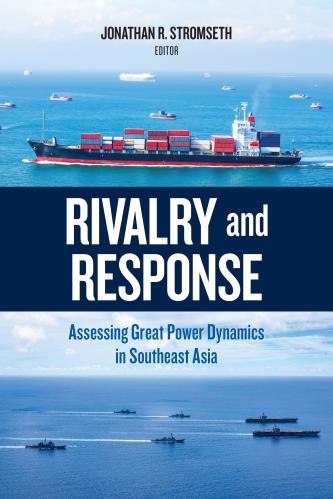
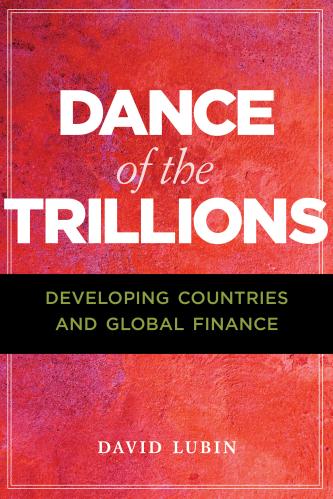
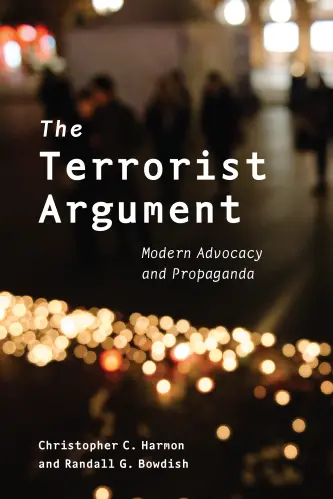

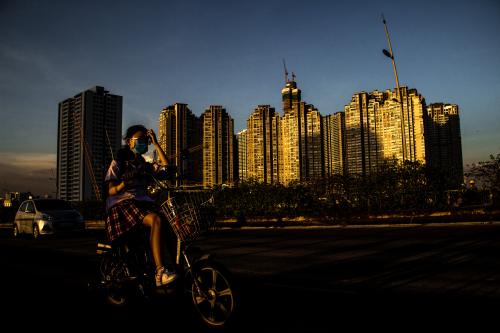
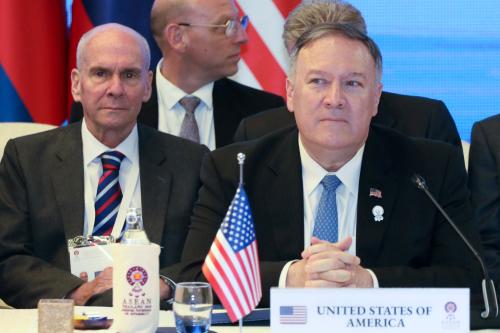

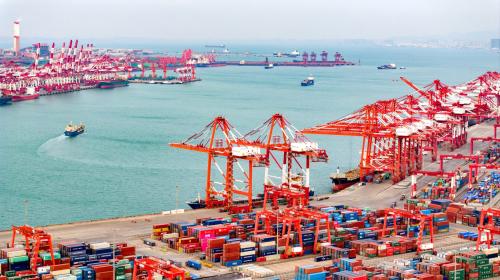
Commentary
The never-ending political game of Malaysia’s Mahathir Mohamad
October 30, 2020